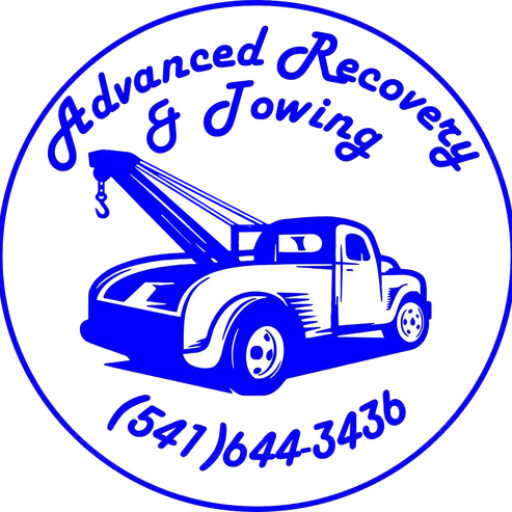Towing services are not just about moving vehicles; they’re about ensuring safety, efficiency, and reliability in transporting vehicles that fall between light-duty passenger cars and heavy-duty commercial trucks. Medium duty vehicle towing encompasses a wide range of vehicles, including box trucks, campers, motorhomes, and small fleet vehicles. Understanding the intricacies of towing these vehicles is crucial for fleet managers, drivers, and towing professionals alike.
Key Takeaways:
- Medium duty towing is specialized for vehicles weighing between 10,001 and 26,000 pounds.
- The right tow truck and towing method are critical for the safety and integrity of the vehicle being towed.
- Preparation and safety are paramount, requiring both the towing service and the vehicle owner to take specific steps before and during the towing process.
- Costs can vary widely based on the type of service, distance, and vehicle specifics.
Understanding Medium Duty Towing
Defining Medium Duty Vehicles
Medium duty vehicles are those designed to perform specific commercial, logistical, or recreational functions, typically weighing between 10,001 and 26,000 pounds. This category includes a variety of vehicles, such as:
- Delivery trucks and vans
- Small buses and shuttles
- RVs and motorhomes
- Utility trucks
Types of Tow Trucks Used
Medium duty towing requires robust and versatile tow trucks, equipped to handle a broader range of vehicle sizes and weights safely.
- Integrated Tow Trucks: These trucks are equipped with specialized wheel-lift technology and a heavy-duty boom, making them ideal for medium duty towing.
- Flatbed Tow Trucks: For vehicles that require off-the-ground transportation, flatbed trucks offer a safe and efficient solution.
| Tow Truck Type | Best For | Why |
|---|---|---|
| Integrated | Diverse medium duty vehicles | Versatility and strength |
| Flatbed | Vehicles needing no contact with the road | Safety and damage prevention |
Towing Methods for Medium Duty Vehicles
The method of towing is selected based on the vehicle’s size, condition, and specific requirements.
- Wheel-Lift Towing: Suitable for medium duty vehicles that can be safely towed with wheels on the road.
- Flatbed Towing: Best for vehicles that need to be transported without any wheels touching the ground, such as damaged vehicles or those with all-wheel drive.
Safety Considerations in Medium Duty Towing
The complexity of towing medium duty vehicles necessitates stringent safety measures to protect the vehicle, the tow truck operator, and other road users.
- Proper Vehicle Securing: Ensuring the vehicle is securely fastened to the tow truck is critical to prevent accidents.
- Weight Distribution: Properly balancing the towed vehicle’s weight is essential for safe towing and handling.
- Traffic Safety: Operators must follow all traffic regulations to ensure the safety of all road users during the towing process.
Rights and Responsibilities
Both the towing service and the vehicle owner have specific rights and responsibilities to ensure a smooth and fair towing process.
- Vehicle Owner: You have the right to a clear explanation of services and associated costs, as well as to expect professional handling of your vehicle.
- Towing Service: The service is responsible for providing a timely, safe, and transparent service, respecting the owner’s property at all times.
Cost Considerations
The cost of towing medium duty vehicles can vary significantly based on several factors, including the towing distance, the type of tow truck required, and any additional services needed. Although most medium duty tows are charged on an hourly rate, the following average rates may apply.
| Service | Average Cost Range |
|---|---|
| Local Towing | $200 – $350 |
| Long Distance Towing | $5 – $7 per mile |
| Additional Services | $50 – $200 |
Choosing the Right Towing Service
Selecting a towing service experienced in medium duty towing is crucial for ensuring the safety and security of your vehicle.
- Experience: Look for a service with specific experience in towing vehicles similar to yours.
- Reputation: Research online reviews and ask for recommendations to find a reputable service.
- Availability: Ensure the service is available 24/7 and can respond promptly to your needs.
Preparing Your Vehicle for Towing
Proper preparation can prevent damage to your vehicle and ensure a smoother towing process.
- Secure Loose Items: Make sure all loose items inside and outside the vehicle are secured or removed.
- Document the Vehicle’s Condition: Take photos of your vehicle from all angles to document its condition before towing.
- Inform the Operator: Provide the tow truck operator with any necessary information about your vehicle, including any mechanical issues or concerns.
Regular Maintenance to Avoid Towing
Keeping your medium duty vehicle in top condition can help avoid the need for unexpected towing.
- Routine Inspections: Regularly inspect your vehicle for any signs of wear or damage that could lead to breakdowns.
- Preventive Maintenance: Follow the manufacturer’s recommended maintenance schedule to keep your vehicle running smoothly.
- Emergency Kit: Always have an emergency kit in your vehicle, including tools, safety equipment, and contact information for your preferred towing service.
By understanding the essentials of medium duty vehicle towing, vehicle owners and operators can ensure that they’re prepared for any situation that requires towing. Whether it’s due to a breakdown, an accident, or any other reason, knowing what to expect and how to prepare can make the towing process as smooth and stress-free as possible.
